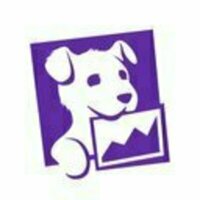Need advice about which tool to choose?Ask the StackShare community!
Centreon vs Grafana: What are the differences?
Introduction:
Centreon and Grafana are both popular monitoring solutions used in IT operations. While both tools help in visualizing data and monitoring systems, there are key differences that set them apart.
1. Customizability: Centreon offers a high level of customizability, allowing users to create flexible dashboards with personalized layouts, visualizations, and widgets. On the other hand, Grafana provides a more limited level of customization, with pre-defined panels and layouts that can be modified to some extent.
2. Data Sources: Centreon mainly relies on SNMP traps and Nagios plugins for data collection, making it suitable for monitoring network devices and servers. In contrast, Grafana offers a wide range of data sources including Elasticsearch, InfluxDB, Prometheus, and more. This makes Grafana a more versatile tool for monitoring various systems and applications.
3. Alerting Capabilities: Centreon provides comprehensive and flexible alerting capabilities, allowing users to set up various alerts based on specific thresholds and conditions. Grafana, on the other hand, lacks built-in alerting functionality and heavily relies on integrations with external alerting tools like PagerDuty or Slack.
4. User Interface: Centreon offers a user-friendly web interface with intuitive navigation and a rich set of features. It provides a centralized platform for monitoring and managing various IT assets. Grafana focuses more on visualizations and data exploration, providing a visually appealing and interactive user interface that allows users to create and share dynamic dashboards easily.
5. Community Support and Integration: Centreon has a strong community of users and developers, resulting in a wealth of community-contributed plugins, extensions, and support. Grafana also has a vibrant community; however, its support for various data sources and integrations is more extensive, making it a preferred choice for users who require diverse data connections.
6. Time Series Data Handling: Grafana specializes in time series data handling and visualization, providing advanced features like data downsampling, data interpolation, and built-in support for time-based queries. While Centreon also supports time series data, its capabilities in this area are more limited compared to Grafana.
In Summary, Centreon offers higher customizability, focuses on SNMP and Nagios plugins for data collection, has comprehensive alerting capabilities, and provides a user-friendly interface, whereas Grafana offers extensive data source integrations, focuses on visualizations, relies on external tools for alerting, has a vibrant community and provides advanced time series data handling features.
Looking for a tool which can be used for mainly dashboard purposes, but here are the main requirements:
- Must be able to get custom data from AS400,
- Able to display automation test results,
- System monitoring / Nginx API,
- Able to get data from 3rd parties DB.
Grafana is almost solving all the problems, except AS400 and no database to get automation test results.
You can look out for Prometheus Instrumentation (https://prometheus.io/docs/practices/instrumentation/) Client Library available in various languages https://prometheus.io/docs/instrumenting/clientlibs/ to create the custom metric you need for AS4000 and then Grafana can query the newly instrumented metric to show on the dashboard.
My team is divided on using Centreon or Zabbix for enterprise monitoring and alert automation. Can someone let us know which one is better? There is one more tool called Datadog that we are using for cloud assets. Of course, Datadog presents us with huge bills. So we want to have a comparative study. Suggestions and advice are welcome. Thanks!
I work at Volvo Car Corporation as a consultant Project Manager. We have deployed Zabbix in all of our factories for factory monitoring because after thorough investigation we saw that Zabbix supports the wide variety of Operating Systems, hardware peripherals and devices a Car Manufacturer has.
No other tool had the same amount of support onboard for our production environment and we didn't want to end up using a different tool again for several areas. That is the major strong point about Zabbix and it's free of course. Another strong point is the documentation which is widely available; Zabbix Youtube channel with tutorial video's, Zabbix share which holds free templates, the Zabbix online documentation and the Zabbix forum also helped us out quite a bit. Deployment is quite easy since it uses templates, so almost all configuration can be done on server side.
To conclude, we are really pleased with the tool so far, it helped us detect several causes of issues that were a pain to solve in the past.
Centreon is part of the Nagios ecosystem, meaning there is a huge number of resources you may find around in the community (plugins, skills, addons). Zabbix monitoring paradigms are totally different from Centreon. Centreon plugins have some kind of intelligence when they are launched, where Zabbix monitoring rules are configured centrally with the raw data collected. Testing both will help you understand :) Users used to say Centreon may be faster for setup and deployment. And in the end, both are full of monitoring features. Centreon has out of the box a full catalog of probes from cloud to the edge https://www.centreon.com/en/plugins-pack-list/ As soon as you have defined your monitoring policies and template, you can deploy it fast through command line API or REST API. Centreon plays well in the ITSM, Automation, AIOps spaces with many connectors for Prometheus, ServiceNow, GLPI, Ansible, Chef, Splunk, ... The polling server mode is one of the differentiators with Centreon. You set up remote server(s) and chose btw multiple information-exchange mechanisms. Powerful and resilient for remote, VPN, DMZ, satellite networks. Centreon is a good value for price to do a data collection (availability, performance, fault) on a wide range of technologies (physical, legacy, cloud). There are pro support and enterprise version with dashboards and reporting. IT Central Station gathers many user feedback you can rely on both Centreon & Zabbix https://www.itcentralstation.com/products/centreon-reviews
We highly recommend Zabbix. We have used it to build our own monitoring product (available on cloud -like datadog- or on premise with support) because of its flexibility and extendability. It can be easily integrated with the powerful dashboarding and data aggregation of Grafana, so it is perfect. All configuration is done via web and templates, so it scales well and can be distributed via proxies. I think there also more companies providing consultancy in Zabbix (like ours) than Centreon and community is much wider. Also Zabbix roadmap and focus (compatibility with Elasticsearch, Prometheus, TimescaleDB) is really really good.
Hi Vivek, what's your stack? If huge monitoring bills are your concern and if you’re using a number of JVM languages, or mostly Scala / Akka, and would like “one tool to monitor them all”, Kamon might be the friendliest choice to go for.
Kamon APM’s major benefit is it comes with a built-in dashboard for the most important metrics to monitor, taking the pain of figuring out what to monitor and building your own dashboards for weeks out of the monitoring.
We're looking for a Monitoring and Logging tool. It has to support AWS (mostly 100% serverless, Lambdas, SNS, SQS, API GW, CloudFront, Autora, etc.), as well as Azure and GCP (for now mostly used as pure IaaS, with a lot of cognitive services, and mostly managed DB). Hopefully, something not as expensive as Datadog or New relic, as our SRE team could support the tool inhouse. At the moment, we primarily use CloudWatch for AWS and Pandora for most on-prem.
this is quite affordable and provides what you seem to be looking for. you can see a whole thing about the APM space here https://www.apmexperts.com/observability/ranking-the-observability-offerings/
I worked with Datadog at least one year and my position is that commercial tools like Datadog are the best option to consolidate and analyze your metrics. Obviously, if you can't pay the tool, the best free options are the mix of Prometheus with their Alert Manager and Grafana to visualize (that are complementary not substitutable). But I think that no use a good tool it's finally more expensive that use a not really good implementation of free tools and you will pay also to maintain its.
From a StackShare Community member: “We need better analytics & insights into our Elasticsearch cluster. Grafana, which ships with advanced support for Elasticsearch, looks great but isn’t officially supported/endorsed by Elastic. Kibana, on the other hand, is made and supported by Elastic. I’m wondering what people suggest in this situation."
For our Predictive Analytics platform, we have used both Grafana and Kibana
- Grafana based demo video: https://www.youtube.com/watch?v=tdTB2AcU4Sg
- Kibana based reporting screenshot: https://imgur.com/vuVvZKN
Kibana has predictions and ML algorithms support, so if you need them, you may be better off with Kibana . The multi-variate analysis features it provide are very unique (not available in Grafana).
For everything else, definitely Grafana . Especially the number of supported data sources, and plugins clearly makes Grafana a winner (in just visualization and reporting sense). Creating your own plugin is also very easy. The top pros of Grafana (which it does better than Kibana ) are:
- Creating and organizing visualization panels
- Templating the panels on dashboards for repetetive tasks
- Realtime monitoring, filtering of charts based on conditions and variables
- Export / Import in JSON format (that allows you to version and save your dashboard as part of git)
I use both Kibana and Grafana on my workplace: Kibana for logging and Grafana for monitoring. Since you already work with Elasticsearch, I think Kibana is the safest choice in terms of ease of use and variety of messages it can manage, while Grafana has still (in my opinion) a strong link to metrics
After looking for a way to monitor or at least get a better overview of our infrastructure, we found out that Grafana (which I previously only used in ELK stacks) has a plugin available to fully integrate with Amazon CloudWatch . Which makes it way better for our use-case than the offer of the different competitors (most of them are even paid). There is also a CloudFlare plugin available, the platform we use to serve our DNS requests. Although we are a big fan of https://smashing.github.io/ (previously dashing), for now we are starting with Grafana .
I use Kibana because it ships with the ELK stack. I don't find it as powerful as Splunk however it is light years above grepping through log files. We previously used Grafana but found it to be annoying to maintain a separate tool outside of the ELK stack. We were able to get everything we needed from Kibana.
Kibana should be sufficient in this architecture for decent analytics, if stronger metrics is needed then combine with Grafana. Datadog also offers nice overview but there's no need for it in this case unless you need more monitoring and alerting (and more technicalities).
@Kibana, of course, because @Grafana looks like amateur sort of solution, crammed with query builder grouping aggregates, but in essence, as recommended by CERN - KIbana is the corporate (startup vectored) decision.
Furthermore, @Kibana comes with complexity adhering ELK stack, whereas @InfluxDB + @Grafana & co. recently have become sophisticated development conglomerate instead of advancing towards a understandable installation step by step inheritance.
Pros of Centreon
Pros of Grafana
- Beautiful89
- Graphs are interactive68
- Free57
- Easy56
- Nicer than the Graphite web interface34
- Many integrations26
- Can build dashboards18
- Easy to specify time window10
- Can collaborate on dashboards10
- Dashboards contain number tiles9
- Open Source5
- Integration with InfluxDB5
- Click and drag to zoom in5
- Authentification and users management4
- Threshold limits in graphs4
- Alerts3
- It is open to cloud watch and many database3
- Simple and native support to Prometheus3
- Great community support2
- You can use this for development to check memcache2
- You can visualize real time data to put alerts2
- Grapsh as code0
- Plugin visualizationa0
Sign up to add or upvote prosMake informed product decisions
Cons of Centreon
Cons of Grafana
- No interactive query builder1


















































